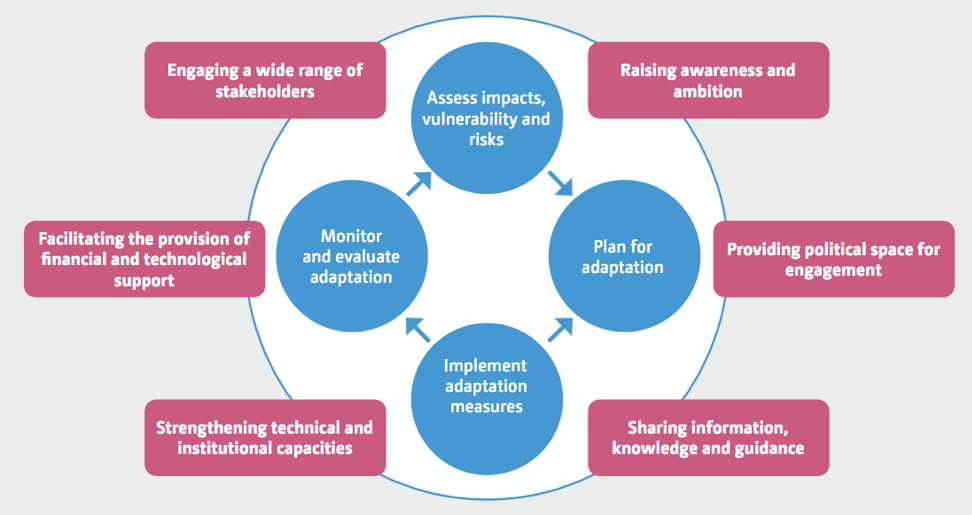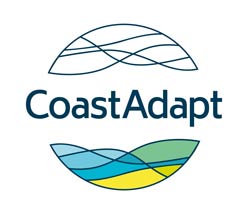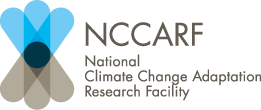You are here
Face-to-face with the UNFCCC
The United Nations Framework Convention on Climate Change (UNFCCC) Adaptation Programme’s Dr Xianfu Lu was a keynote speaker at the Climate Adaptation 2016 conference, hosted by NCCARF and CSIRO in Adelaide this year. She spoke with CoastExchange:
What should local councils in Australia be thinking of in relation to adaptation?
Local councils in Australia (and indeed elsewhere) should think about delivering local services under a changing climate. In practical terms, they would need to analyse potential risks and opportunities, then develop policy options to manage risks and take advantage of possible opportunities. In doing so, they would need to consult interest groups/stakeholders to elicit their inputs, raise awareness and get buy-in for the implementation of any policy interventions or new practices.
What UNFCCC activities are undertaken in Australia, and how can local councils benefit from knowledge or activities driven by the UN?
As a Party to the UNFCCC, Australia implements all provisions agreed under the UNFCCC. For example, Australia provides periodic reports, in the form of National Communications – the latest one, submitted in 2013, includes a chapter on vulnerability and adaptation. As a developed country Party, Australia is also requested to provide financial and technological support for adaptation to developing countries.
Local councils in Australia can certainly benefit from the knowledge generated from the UNFCCC process through, for example, the Nairobi work programme – an adaptation knowledge mechanism under the UNFCCC. In addition, local councils may take advantage of relevant national/Federal level policies (for example, legislative provisions) to make the transition towards climate resilience. For example, the federal government may require an update of building codes in order to address emerging climate risks; by adopting the new building codes, local councils would be able to ensure the safety and service delivery of essential public infrastructure in a changing climate.
Can you give a brief overview of the UNFCCC’s activities that relate to adaptation?
Following the predominance of mitigation discussions in the global climate policy debate under the UNFCCC, adaptation has been gaining increasing importance in recent years. This is most evident in the recently adopted Paris Agreement which provides a truly mitigation and adaptation parity. The UNFCCC process addresses adaptation through, among others:
• Providing a political space for engagement of national governments as well as other stakeholders;
• Raising the awareness for the need to adapt and ambition for taking adaptation actions;
• Facilitating the provision of financial and technological support for adaptation;
• Strengthening technical and institutional capacities; and
• Facilitating learning and knowledge sharing.
How does the latest science feed into UN activities?
The primary channel for science inputs into the UNFCCC is through the IPCC. For example, upon the invitation by the UNFCCC at the Paris conference in December 2015, the IPCC has recently decided to prepare a special report on the impacts of a 1.5 degrees Celsius global warming (above pre-industrial level) and related global greenhouse gas emission pathways, to be made available in 2018. This report, together with other information, will inform a facilitative dialogue in 2018. The dialogue intends to take stock of the collective efforts of Parties in progress towards achieving the global temperature goal and to inform the preparation of Nationally Determined Contributions (NDCs). In addition, there is a research dialogue each year (usually during the middle of the year session in Bonn) under the Subsidiary Body for Scientific and Technological Advice. During the research dialogue, negotiators can directly interact with scientists on specific technical issues.
efj2d3k2upphci4h.png

More information: United Nations Framework Convention on Climate Change (UNFCCC) Adaptation Programme




